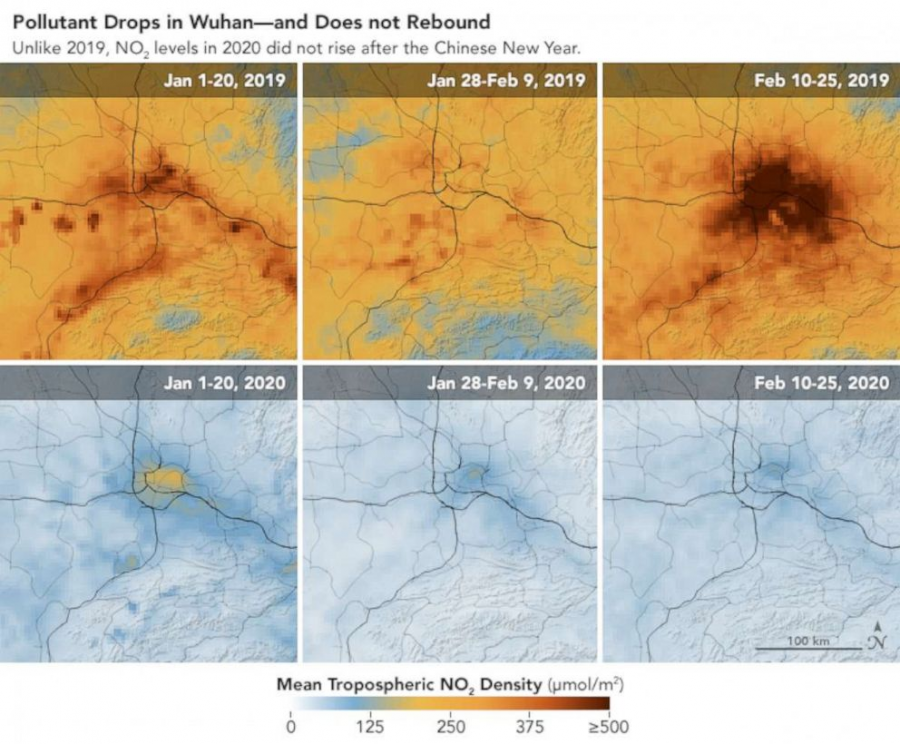Corona corrections
COVID-19 brings unexpected environmental benefits
NASA satellites show how COVID-19 isolation caused nitrogen dioxide levels to significantly drop in China in 2020 compared to 2019, putting fewer pollutants out into the environment.
Obviously putting a large portion of the human race on lockdown has an effect on the outside world. While COVID-19 has brought death and suffering to many humans, it has shone a light on the environmental state of our earth and benefited us in a way many did not expect.
Climate change is an issue that many environmentalists worry about today. Greta Thunberg, TIME’S Person of the Year in 2019, is known to many solely because of her efforts to help solve this worldwide problem. While giving speeches and raising awareness for climate change does make people more inclined to treat the environment better, talking only does so much.
In recent years, the world has seen temperatures rise, ice caps melt, fires roar and pollution levels increase. Until now, there was no hope of slowing or stopping these natural occurrences from happening. Amid the coronavirus lockdown, places all over the world are seeing countless environmental side effects and phenomenons that they have not seen in years, all due to people staying inside.
With streets cleared of people and vehicles, factories shut down and all non-essential flights grounded, the world is seeing major decreases in the amount of harmful emissions being put out into the atmosphere. According to BBC News, pollution levels in New York have dropped by nearly 50% due to isolation measures taken to contain the virus.
The virus has also benefited people in the crowded cities of China. Clouds of nitrogen dioxide usually suffocate China, but are slowly disappearing for the first time since Beijing enacted travel restrictions in 2008 due to the Olympics being held there. Satellites built by NASA and the European Space Agency found that concentration levels of nitrogen dioxide largely decreased from Jan. 1 to Jan. 20 and then again from Feb. 10 to Feb. 25. According to Lauri Myllyvirta, an analyst at the Centre for Research on Energy and Clean Air in Finland, COVID-19 restrictions also caused a 25% drop in China’s carbon dioxide emissions over four weeks starting in late January, compared to the same time last year.
Another country that is being positively affected by mass quarantine is Italy, specifically in and around Venice and areas with lots of water. Venice has been struggling with overtourism for decades, so this quarantine came at the right time for them. Water in canals is noticeably clearer to residents, dolphins are swimming further into ports, swans have returned to the canals and wild boars are roaming streets freely. According to The Daily Telegraph, dolphins usually keep away from Italy’s coast because of cruise ships and other boats, but they were spotted in March swimming straight up to ports in Cagliari, Italy.
There is no way of knowing whether or not this period of mass quarantine will have a lasting effect on the environment, but as of now, it has been made clear that the environment thrives with less exposure to people and the pollution they create.



